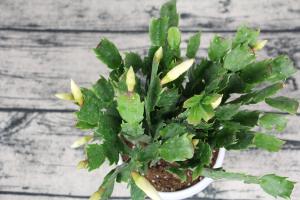What to Add to Tomatoes When Planting
Tomatoes are one of the most beloved vegetables grown in gardens around the world. They are not only delicious but also packed with nutrients. To ensure a successful harvest, it is essential to provide them with the proper growing conditions. Besides water and sunlight, there are a few things you can add to tomatoes when planting to help them thrive. Here are some of the best things to add:
Compost or Well-Rotted Manure
Compost or well-rotted manure is a superb addition to the soil when planting tomatoes. These organic materials provide essential nutrients like nitrogen, phosphorous, and potassium that tomatoes need to grow and produce abundant fruits. The decomposition of the organic matter also helps to improve soil fertility, structure, and moisture retention. You can buy compost or manure from garden centers or make your own at home.
Epsom Salt
Epsom salt is an excellent source of magnesium and sulfur, two essential minerals that tomatoes require to grow properly. Magnesium is a component of chlorophyll, which is responsible for the green color of leaves and helps plants produce energy from sunlight. Sulfur is involved in the production of amino acids, enzymes, and proteins. Epsom salt also helps to prevent blossom end rot, which is a common problem for tomatoes. To use it, mix 1 tablespoon of Epsom salt in one gallon of water and apply it to the plant's base.
Bone Meal
Bone meal is a slow-release fertilizer that provides phosphorous, a vital nutrient for tomato plants' growth and development. It also contains calcium, which helps to prevent blossom end rot. Bone meal is an excellent addition to the soil when planting tomatoes, but make sure to use it sparingly. Too much of it can lead to excessive nutrient levels in the soil, which can harm the plants. Mix one or two cups of bone meal per plant into the soil before planting.
Crushed Eggshells
Crushed eggshells are an excellent source of calcium for tomatoes. Calcium is essential for healthy cell division, strong cell walls, and overall plant structure. It also helps to prevent blossom end rot. You can crush the eggshells by hand or use a blender to make fine powder. Add 1-2 tablespoons of crushed eggshells to the soil around the plant's base when planting.
Conclusion
In conclusion, adding compost or well-rotted manure, Epsom salt, bone meal, or crushed eggshells to the soil when planting tomatoes can significantly benefit the plants' growth and development. These organic materials provide essential nutrients like nitrogen, phosphorous, potassium, magnesium, sulfur, and calcium that tomatoes need to thrive. Remember to use them sparingly and follow the instructions carefully. With the proper care, your tomato plants will produce an abundant harvest of delicious fruits.

 how many times do yo...
how many times do yo... how many planted tre...
how many planted tre... how many pine trees ...
how many pine trees ... how many pecan trees...
how many pecan trees... how many plants comp...
how many plants comp... how many plants can ...
how many plants can ... how many plants and ...
how many plants and ... how many pepper plan...
how many pepper plan...































